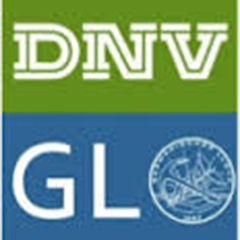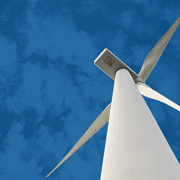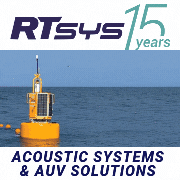· Concluding chapter of World Energy Resources 2016 report cites pivotal role of storage
· Lead author Paul Gardner from DNV GL presents conclusions at World Energy Council Congress 2016 in Istanbul October 10, 2016
· World’s largest resource of independent energy experts and certification body analyses industry drivers including technology advancements, regulatory trends and increased deployment
ARNHEM, Netherlands (12 October 2016) – In the concluding chapter for the World Energy Council’s World Energy Resources 2016 report released today at the 23rd annual World Energy Council Congress in Istanbul, DNV GL asserts that energy storage is playing an increasingly crucial role in the transformation to a cleaner, smarter, safer energy future worldwide. Lead author Paul Gardner, global segment leader of energy storage at DNV GL, will present the chapter’s content Monday and Wednesday at the Congress.
“Energy storage is pivotal to meeting the challenges facing economies worldwide,” says Gardner. “With this chapter, which follows sections on a variety of generation resources and technologies, we hope to present the challenges and opportunities in energy storage with a thorough examination of the economic, regulatory and commercial factors surrounding it.”
The chapter examines technical, financial, environmental and regulatory aspects of a variety of energy storage technologies including lithium-ion and flow batteries. It looks at the impact of increasing amounts of battery storage, and battery capacity in electric vehicles. Graphs depict storage technologies according to performance characteristics, using energy capacity and discharge time at rated power. Information gathered directly by PwC shows the levelised cost of storage in 2015 compared to the cost of 2030 in a bar graph, showing a projected decrease in future prices. The chapter develops three major conclusions:
1. The main areas of growth in the next five years are likely to be in small-scale battery storage in conjunction with solar PV; in utility-scale electricity storage; in electric vehicles; in commercial, communications and software capabilities to allow DER to be aggregated, in a ‘virtual powerplant’ or ‘swarm’; in pumped storage hydro; and in islanded use cases integrating renewables.
2. Most commercial interest is in battery storage and the costs of several storage technologies will fall as production volumes increase.
3. The future outlook for energy storage markets is good due to an increasing need, but the regulatory and legal frameworks are failing to keep pace.
According to the World Energy Council, the investment community has good reason to be excited about the innovation and business models that will emerge from new opportunities. With the cost of capturing and storing wind and solar energy coming down, its deployment across the world will increase.
The World Energy Council is the principal impartial network of leaders and practitioners promoting an affordable, stable and environmentally sensitive energy system for the greatest benefit of all.
Lead author Gardner produced the chapter with collaboration and contributions from a strong working group of experts from across the energy industries. Gardner is an electrical engineer who has worked in the renewable energy industries, principally wind, since 1984. His experience includes wind turbine electrical systems, network connections, grid integration issues, and strategic and market advice to government bodies, NGOs, established companies in the renewables industries, and new entrants. DNV GL’s active team of energy storage analysts, who provide technical and commercial advice to clients on storage technologies, also played a large role in the development of the chapter. World-class energy storage testing labs and certification activities provide DNV GL with the ability to guide organisations across the entire energy storage value chain.
Gardner spoke at the WEC event on Monday, October 10, 2016 to present DNV GL’s energy storage chapter and again on Wednesday, October 12, 2016 at the report’s launch event. Other DNV GL experts attending include Turkey country manager, Fatma Murray and Andreas Schröter, Executive Vice President for advisory, Central Europe and Mediterranean, who will be speaking at a roundtable event.
DNV GL
Driven by our purpose of safeguarding life, property and the environment, DNV GL enables organizations to advance the safety and sustainability of their business. We provide classification and technical assurance along with software and independent expert advisory services to the maritime, oil & gas and energy industries. We also provide certification services to customers across a wide range of industries. Operating in more than 100 countries, our professionals are dedicated to helping our customers make the world safer, smarter and greener.
In the Energy industry
In DNV GL we unite the strengths of DNV, KEMA, Garrad Hassan, and GL Renewables Certification. DNV GL’s 2,500 energy experts support customers around the globe in delivering a safe, reliable, efficient, and sustainable energy supply. We deliver world-renowned testing, certification and advisory services to the energy value chain including renewables and energy efficiency. Our expertise spans onshore and offshore wind power, solar, conventional generation, transmission and distribution, smart grids, and sustainable energy use, as well as energy markets and regulations. Our testing, certification and advisory services are delivered independent from each other.
Learn more at www.dnvgl.com/energy.























